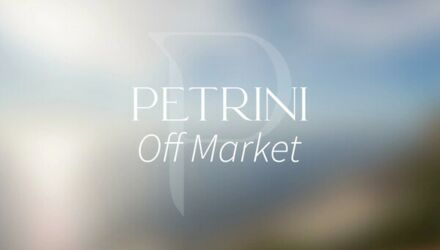

The job market and quality of life are not the only reasons that explain the enthusiasm for the Principality. Indeed, the advantageous tax status which exempts Monegasque residents from income tax is a significant advantage. In addition, there is no wealth tax, property tax, housing tax, or inheritance tax.
The Principality of Monaco is known around the world for the flexibility of its taxation. As surprising as it may seem, in Monaco there are no local taxes such as property tax or housing tax. On the other hand, no wealth tax is applied to the assets of Monegasque residents.
Even more surprisingly, the State exempts natural persons resident in the country from tax on their income. However, there is an exception to this exemption for people of French nationality, even if they have a residence permit. Indeed, it only applies to French nationals governed by the bilateral Franco-Monegasque Convention of 1963. That is to say, French people who can justify five years of residence in Monaco before the date of October 13 1962. Otherwise, these people are subject to income tax, and deducted at source, under the same conditions as if they had their tax domicile in France.
However, there is an exceptional status called “child of the country” which concerns any person of foreign nationality born or adopted in Monaco, who has since then resided there without interruption. In this specific case, and with regard to income tax, the latter are no longer considered to have their tax residence in France. Law No. 1.506 of July 2, 2021 officially recognizes the status of children of the country and their role in the development of the Principality of Monaco.
VAT
Monegasque companies are subject to Value Added Tax (VAT), in accordance with European Union law. This tax applies regardless of the structure of the company. In short, private companies, limited liability companies, or public limited companies, are liable for VAT.
The VAT system is almost identical to that of France, due to the tax convention signed by the two countries in 1963. Thanks to this declaration, companies can also assert their right to deduct VAT. Thus, companies must ask the authorities to refund the VAT paid on goods and services acquired in the course of their professional exercise.
In addition, Monaco's main tax revenue comes from the VAT applied in accordance with French regulations, and from income tax.
The Tax Convention between the French State and the Principality of Monaco, signed on May 18, 1963, aims to impose a tax on profits (ISB) for any commercial or industrial company carried out in Monaco. Taxes on profits concern companies established in Monaco and achieving more than 25% of their turnover outside the place of exercise of the activity, Monegasque territory.
Between 1993 and 2018, the applicable tax rate was 33% of the turnover of operations carried out outside Monaco. In accordance with the provisions of Sovereign Ordinance No. 7.174 of October 24, 2018 which introduces a gradual reduction in the CIT rate. Since January 1, 2022, the standard rate has been set at 25%.
Registration fees are applicable to individuals and Monegasque companies, in accordance with the provisions of the Sovereign Ordinance of 29 April 1828. They are collected during a legal act called registration. The rate varies according to the nature of the operation, it can be proportional (between 0.5% and 7.5%) or fixed (€10). These rights concern, among other things, notarial deeds, legal deeds, declarations of succession, leases or deeds of transfer of business assets.
Stamp duty is a tax that a taxpayer must pay to the administration for carrying out certain operations. Among other things, civil and judicial acts and writings that can be produced in court. Depending on the nature of the act, the stamp duty can be proportional or fixed.
Since the Principality is often considered a tax haven, inheritance tax is often overlooked. However, these rights apply to all property located on Monegasque territory, regardless of the nationality, residence or domicile of the legatee or beneficiary. The Franco-Monegasque Convention, signed in Paris on April 1, 1950, makes it possible to avoid double taxation at the time of succession thanks to the exchange of information between the administrations.
After the inventory of the deceased's assets and the deduction of debts, the tax rate is fixed and depends on the degree of kinship between the two parties. In the case of a so-called “direct line” succession, i.e. between parents and children or between spouses, the rate is set at 0%. In France, the rate applicable in this situation varies from 5 to 45% depending on the amount of the estate.
If it is not a succession in direct filiation, the level of taxation is as follows:
• Between siblings: 8%
• Between uncles, aunts, nephews and nieces: 10%
• Between collaterals other than brothers, sisters, uncles, aunts, nephews or nieces: 13%
• Between non-relatives: 16%
To conclude, natural and legal persons with a residence permit are exempt from almost all taxes. However, this exemption does not apply to residents of French nationality who arrived in the Principality after 1963. On the other hand, the amount of taxes levied on companies established in the Principality represents the country's main source of income. If you are looking for real estate in Monaco and you want to become an owner in Monaco, we invite you to consult the home page of our Monaco real estate agency.

We present a superb four-room apartment located in the highly sought-after Eden Star residence in Fontvieille, offering beautiful volumes, large terraces and elegant services in the heart of an exclusive environment of Monaco. Contact us for more information.
Price on request
Dive into luxury and serenity with this large two-bedroom apartment located in the heart of Fontvieille, offering breathtaking views of the sea, rose garden, and the Rock. Facing southeast, it is drenched in dazzling natural light that highlights its elegant design and premium finishes. This haven of peace, nestled in the prestigious Seaside Plaza, promises a life of refinement and exclusivity. Enjoy an idyllic living environment where luxury, comfort, and natural beauty come together to create an unparalleled living experience.
10 250 000 €
Discover this sumptuous 4-room apartment completely renovated, located in the Riviera Palace. Offering a breathtaking view of the Casino de Monte-Carlo and the sea, it combines contemporary elegance, top-of-the-range services and an exceptional location in the heart of Monaco.
14 900 000 €

Contact our real estate agency in Monaco
In which district would you like to search for your future apartment?